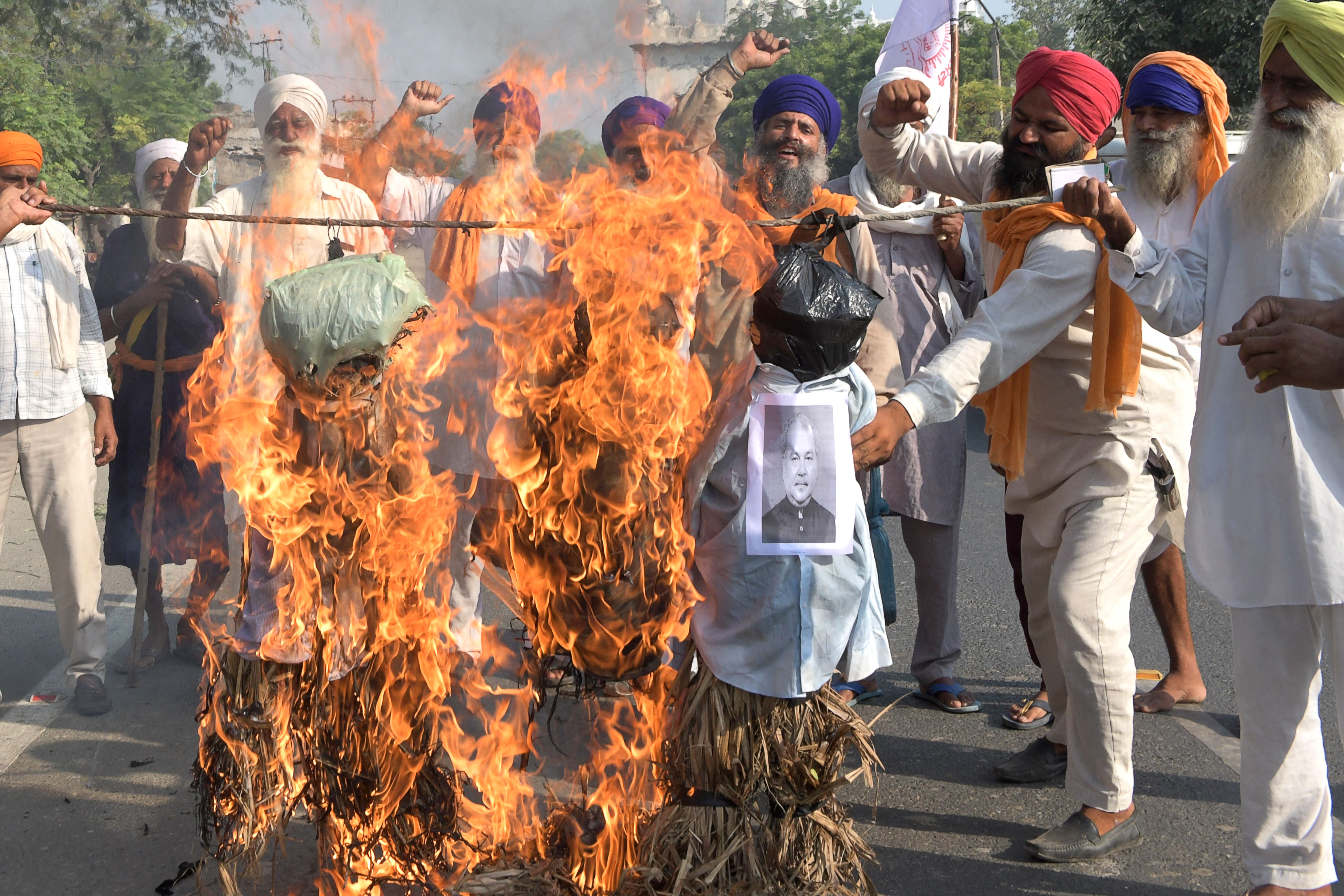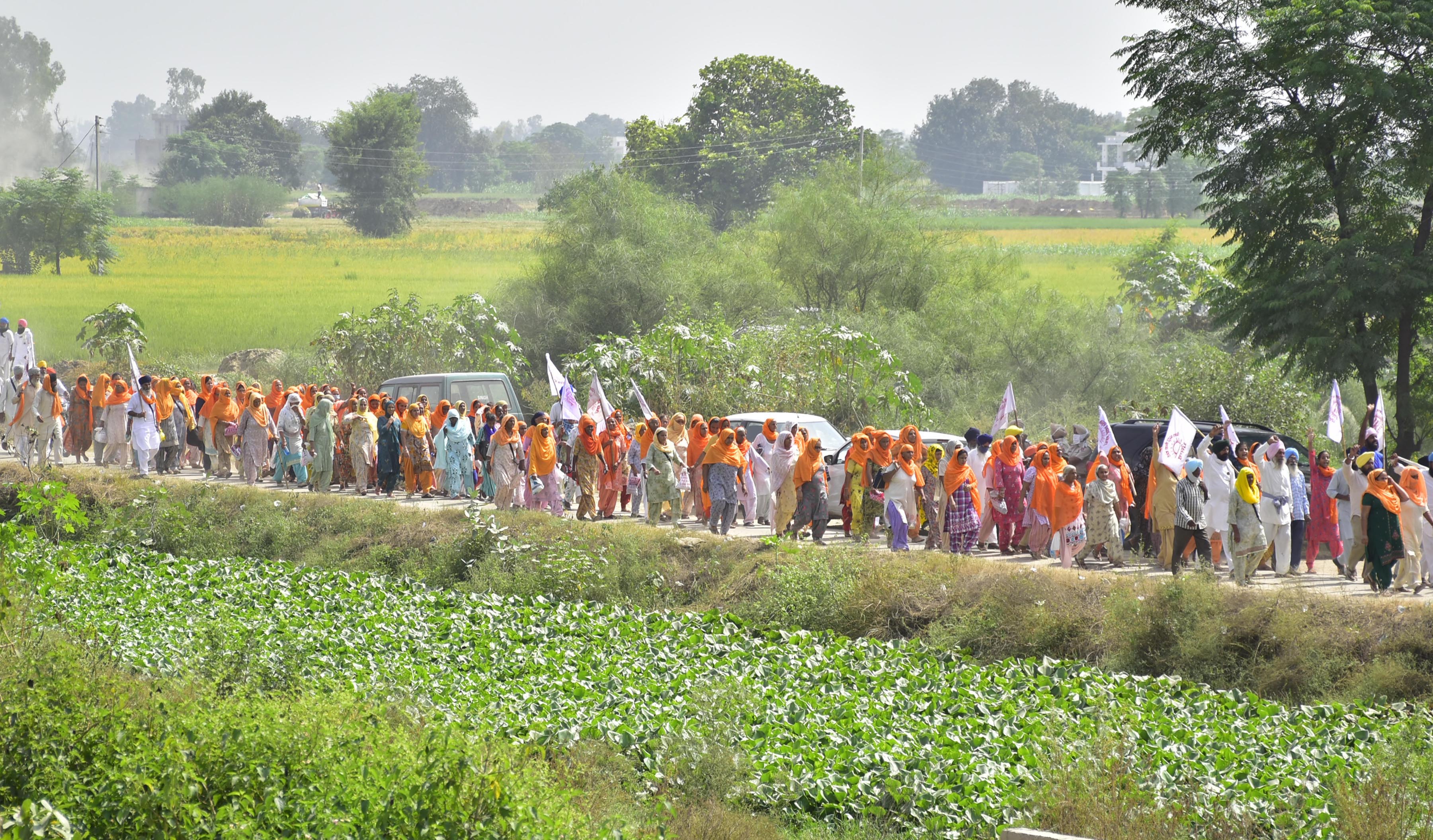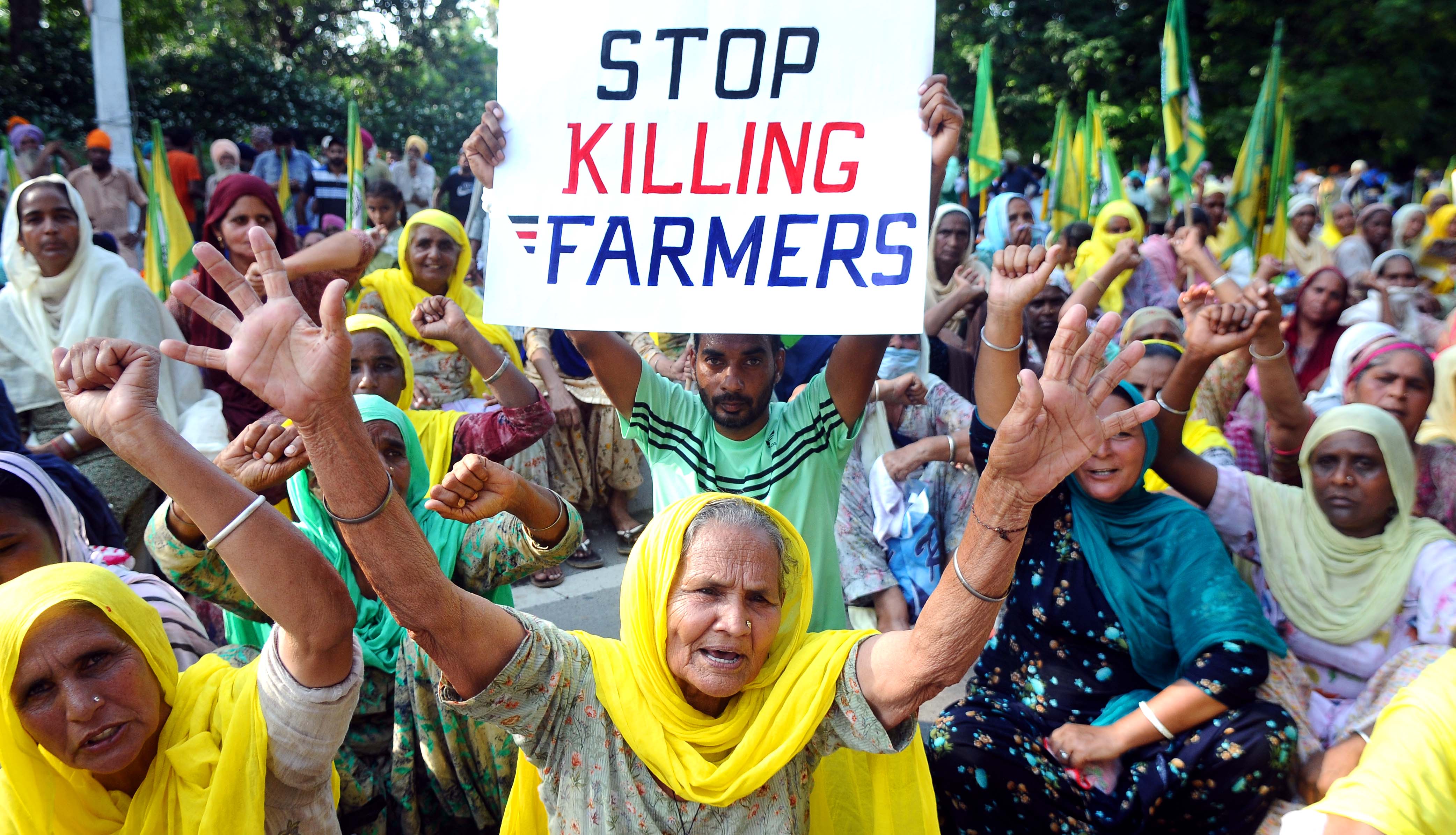Three controversial laws have triggered a wave of angry protests in some Indian states over the last week. Distressed farmers have been occupying the streets, railway tracks and highways opposing the latest farm bills that aim to reform the way they will be allowed to do business.
Over 250 farmer and farm-worker organisations, under the umbrella body, All Indian Kisan Sangharsh Coordination Committee, led the nationwide protest on Friday, September 25. The agitations continue in Indian states such as Punjab, Haryana, West Bengal and Uttar Pradesh. The acts in question have been criticised for being “pro corporate” and “unconstitutional”.
India’s farmers, 86 percent of whom are small and marginal, are a vulnerable and risk-prone community.
One of the oldest and the most important industries in the Indian economy, agriculture contributes 18 percent to the country’s Gross Domestic Product, and employs 60 percent of its population.

An increasing number of people are giving up farming because of the economic risks. The sector also sees an alarming rate of deaths by suicide by farmers who cannot cope with the distressed sector. As many as 10,281 farmers died by suicide in 2019, according to the latest data by the National Crime Records Bureau. Studies also show that 20 percent of Indian farmers live below the poverty line (USD3.2/day).
Last week, the Minister of State (Home Affairs) G Kishan Reddy told the Upper House that there is no data on the causes of farmer suicide.
The slew of new rules and regulations appear to have exacerbated the preexisting pressures and problems.
The new laws will relax the rules on the sale, pricing and storage of farm products. It will also allow private buyers to stock essential commodities for future sales, as compared to before when only government-authorised agents and markets could do so.
The Indian law prohibits hoarding of essential items.
There’s also a contractual framework for farmers, where they tailor their production according to the buyers’ demands.

The farmers also have the choice to sell their produce wherever they want in the country, as opposed to earlier where inter-state trade was not allowed.
The farmers’ main concern is being left at the mercy of big corporations and private players, without the option of the farmers to the middlemen for opportunities to negotiate. They also think this will end the wholesale markets and assured prices. Small and marginalised farmers are concerned that the news laws will affect their authority over their produce and land. even more.
The government will continue to buy a few items directly from farmers like it was doing before the passage of these bills.
On September 20, the Indian government passed the bills in both the Houses of the Parliament in a manner that the opposition parties call “unconstitutional”. They said the bills were passed without consulting other stakeholders and ignoring the demand to send the bills to a parliamentary committee to discuss it further.
Indian Prime Minister Narendra Modi, however, called the passage of these bills a “watershed moment in the history of Indian agriculture”.
“For decades, the Indian farmer was bound by various constraints and bullied by middlemen. The bills passed by Parliament liberate the farmers from such adversities,” he tweeted. “These bills will add impetus to the efforts to double income of farmers and ensure greater prosperity for them.”
Derek O’Brien, a member of the Parliament from the Trinamool Congress, alleged that the passing of the bill was not televised on the official Upper House channel, Rajya Sabha TV, to “censor” the decision to the country.
On Sunday, September 28, President Ram Nath Kovind gave a nod to the three bills.
On September 19, a debt-ridden farmer protesting the farm bills died by suicide in the northern Indian state of Punjab. The passage of the bills also led to Shiromani Akali Dal, one of Prime Minister Modi’s oldest political allies, to pull out of the National Democratic Alliance and support the farmers.

Meanwhile, farmers continue to occupy the streets. On Monday, September 28, a tractor was set ablaze in front of New Delhi’s India Gate to protest against the farm bills, leading to detentions.
An analysis noted that the number of farmers’ protests are increasing over time. Between 2014 and 2016, farmer protests increased from 628 to 4,837.
In previous years, farmers across the country have risen to protest the agrarian crisis and the mounting debt that escalated farmer suicides in some states.
On September 28, a member of Parliament from the southern Indian state of Kerala moved the Supreme Court to challenge the validity of the laws. This is the first legal challenge to the “unconstitutional, illegal and void” acts.
Follow Pallavi Pundir on Twitter.
from VICE US https://ift.tt/36kXwpA
via cheap web hosting
No comments:
Post a Comment